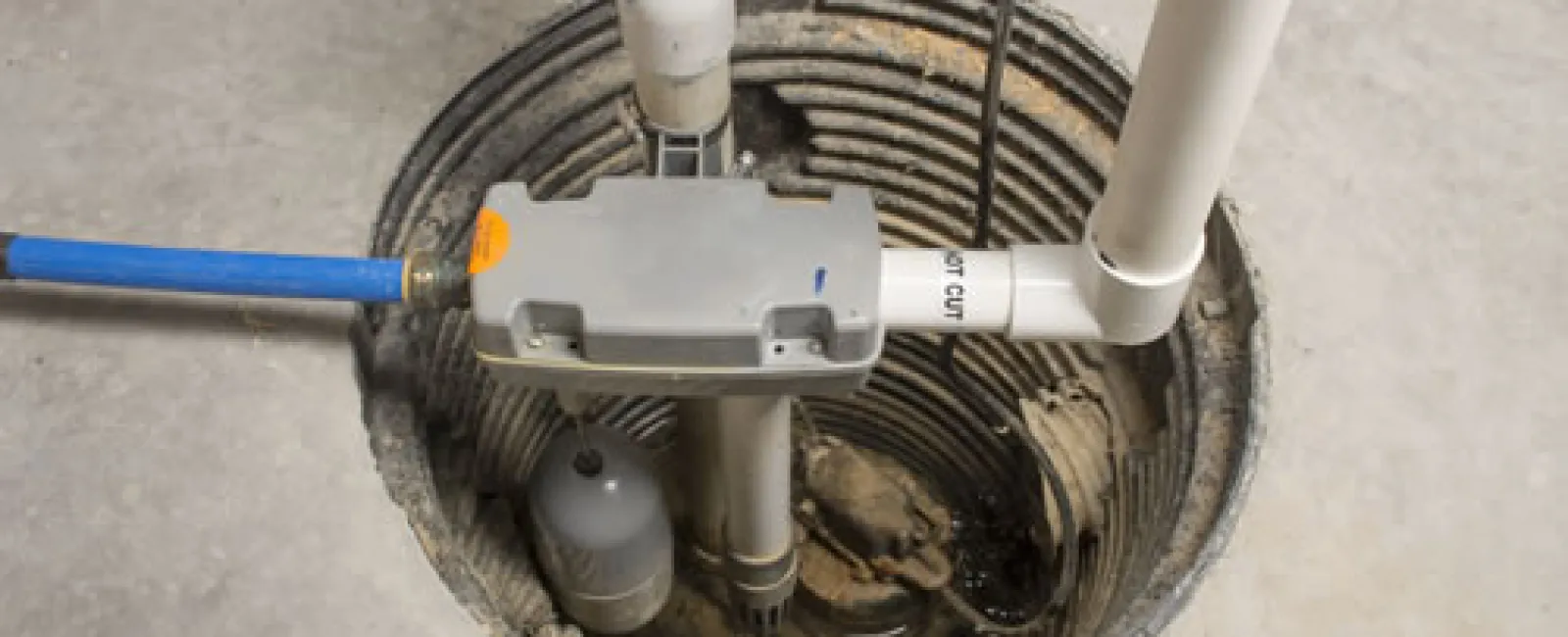You are probably familiar with a sump pump, especially if you live in a low-lying area and have a basement in your home or building. Even if you do not necessarily know what a sump pump is, you have probably noticed it in your basement. You may have also noticed what appears to be a second sump pump, often located near appliances such as a washer, dryer, or toilet. That second unit is likely an ejector pump. Both play important roles in keeping the basement dry and relatively habitable, but they serve very different purposes. In this article brought to you by Mr. Rooter Plumbing of Atlanta, we will go over the difference between sump and ejector pumps.
What Is A Sump Pump?
Let's start with the more common of the two: the sump pump. This is a small, often submersible, water pump located within a cylindrical pit around two feet deep. This pit is called the sump pit. Groundwater that makes its way into the drain tile system flows into the sump pit. When the water level reaches a specific target, the sump pump's float switch triggers the pump. Once the pump is activated, the water is safely pumped out of the basement and into the lawn, municipal storm sewer, or dispersal device.
What Is an Ejector Pump?
An ejector pump, unsurprisingly, also uses a pump to eject water from low-lying areas such as the basement. An ejector pump looks a lot like a sump pump and is installed in a basin in the floor. The difference here is the type and source of the water as well as the destination of the ejected water. It does not collect ground water though. Instead, the ejector pump is responsible for sending dirty water from appliances such as a washer, dryer, or toilet to the sewer line or septic tank.
Because ejector pumps deal with dirty, gray or black, water, they will have a sealed lid on its basin with vent pipes to handle the sewer gases.
Value of Backup Pumps
Both ejector pumps and sump pumps are prone to failure and the consequences can be costly. A sump pump failure can cause your basement to flood with groundwater while an ejector pump failure can expose the area to harmful chemicals, pathogens, and bacteria. Unfortunately, power losses go hand-in-hand with floods and storms. The good news is that there are battery-powered backup pumps available. Install a backup pump as an insurance against such power losses.
Sump Pump and Ejector Pump Service Available
Whether you need a sump pump or ejector pump installed, replaced, or repaired, the folks at Mr. Rooter Plumbing of Atlanta are ready to help. We are also at your service when you need a backup unit installed. As a pro tip, don't forget to test your sump pit once every few months to make sure the float switch and pump are working. Also make sure the outlet drains are free of debris and dirt that can clog the line.
